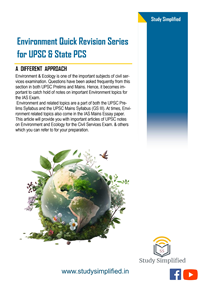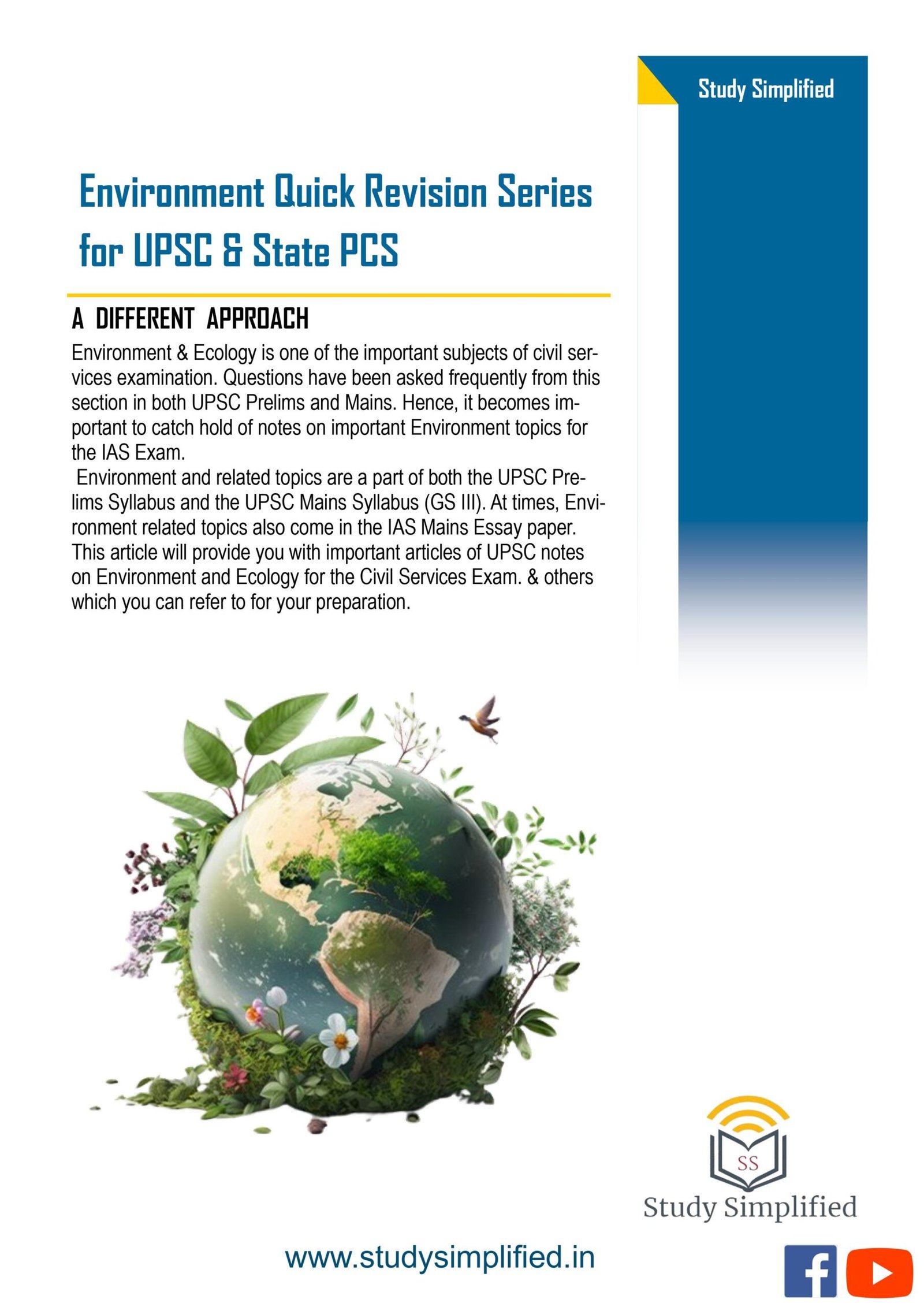Studying Environment and Ecology is essential for various competitive exams like UPSC, SSC, PSC, and others due to several important reasons:
- Syllabus Coverage: Many competitive exams include a dedicated section on Environment and Ecology. Understanding this subject is crucial for scoring well in these exams.
- Environmental Awareness: In today’s world, environmental issues such as climate change, pollution, deforestation, and biodiversity loss are of paramount importance. Competent administrators and policymakers need a strong understanding of these issues to formulate effective policies and strategies.
- Sustainable Development Goals (SDGs): The United Nations’ Sustainable Development Goals form a blueprint for achieving a better and more sustainable future for all. Knowledge of environment and ecology is essential for advancing these goals, and candidates aspiring for administrative roles should be well-versed in them.
- Environmental Laws and Regulations: Many questions in competitive exams focus on environmental laws, regulations, and international agreements. Candidates need to be familiar with key legislations, such as the Environment Protection Act, Wildlife Protection Act, and international agreements like the Paris Agreement.
- Current Affairs Relevance: Environmental issues frequently make headlines, from climate summits to conservation efforts. Keeping abreast of these developments is crucial for answering current affairs questions in exams and for understanding the contemporary context of environmental challenges.
- Role in Governance and Administration: Administrators at various levels, including civil servants, need to address environmental concerns in their decision-making processes. Understanding environment and ecology equips candidates with the knowledge to integrate environmental considerations into governance and administration.
- Conservation and Management of Natural Resources: Competent management of natural resources is essential for sustainable development. Candidates studying environment and ecology gain insights into conservation practices, sustainable resource management, and biodiversity conservation, which are critical for effective governance.
- Global Perspectives: Environmental issues often transcend national boundaries. Understanding global perspectives on environmental challenges, international agreements, and collaborative efforts is crucial for candidates aiming for roles in international organizations or diplomacy.
In short, studying Environment and Ecology is not only important for scoring well in competitive exams but also for developing a holistic understanding of environmental issues, which is vital for informed decision-making and effective governance in a rapidly changing world.

